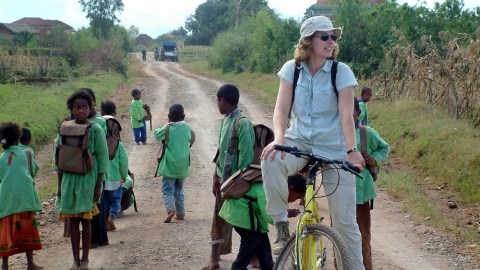Talking About AIDS in Africa: From Denial to Fear

When the HIV/AIDS epidemic first appeared, a lot of the reaction was that it’s not happening here. It doesn’t exist. It’s not on the continent of Africa. Then we moved into this other phase, in which it was kind of like it’s everywhere. AIDS is Africa. When you looked at advertisements for campaigns or projects, you would think that almost every African on the continent had HIV/AIDS, that as soon as you stepped foot there you were at risk.
As people became more aware there was this fear that rose as well. I guess that’s natural, but then at the same time that fear was then used to bring more people’s attention to the epidemic and its impacts on populations.
I don’t know whether anyone can say whether that’s good or bad. It happened and it did bring a lot of attention, but I think there was a cost to that and the cost was again this dehumanizing in some sense, like equating Africans with a disease, equating the continent with everything bad that happened.
I think that gets people to act quickly in some senses: “let’s stop the problem, let’s find a solution as quickly as possible,” but it’s ultimately not sustainable. I think if you want to sustain efforts to fight this epidemic, which is a long term thing, it’s not something that you can just knock out with a silver bullet. You have to change your dialogue and you have to look at how you can make people relate to people and not to the disease.
When you relate to a disease, you’re afraid. When you relate to a person, there is compassion. You see someone that is like you, that could be like you. You can see yourself in that same situation. I think that’s the kind of messaging that we need to move towards as people look at the epidemic and look at where we’re going in terms of our ability to treat, in terms of our ability to deal with the larger cost issues and larger public health issues surrounding the epidemic.
In Their Own Words is recorded in Big Think’s studio.
Image courtesy of Shutterstock





